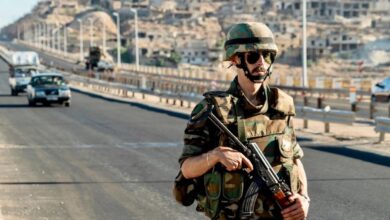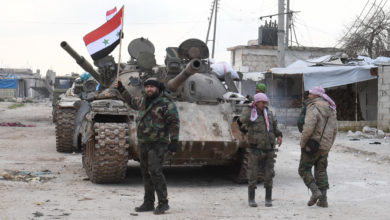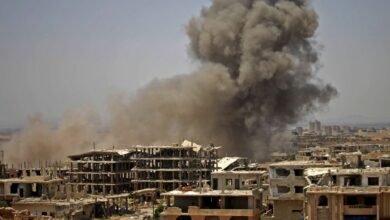Syria War Death Toll Over 507,000, 13 Years On
Syria’s war has killed more than 507,000 people, a war monitor said Thursday ahead of the 13th anniversary of the conflict which has displaced millions at home and abroad.
The government’s brutal suppression of an uprising that erupted on March 15, 2011, triggered a full-scale civil war that drew in foreign armies and international jihadists.
The Syrian Observatory for Human Rights, a Britain-based monitor, said more than 164,000 civilians, including more than 15,000 women and 25,000 children, have been killed.
More than 343,000 combatants, including army soldiers, fighters from pro-Iran groups, Kurdish-led forces, and Islamic State group jihadists, are also among the dead, added the Observatory, which has a network of sources across the country.
The overall figure has risen from around 503,000 last March, with the frontlines mostly quietening in recent years.
Syrian President Bashar al-Assad has gradually clawed back territory lost early in the fighting with help from allies Iran and Russia, but large swathes of the north remain outside government control.
The United Nations has said that this year, 16.7 million people in Syria require some type of humanitarian assistance or protection, “the largest number since the beginning of the crisis in 2011.”
The war has ravaged Syria’s economy, infrastructure, and industry, while Western sanctions have added to the country’s woes.
Syria is home to around 7.2 million internally displaced people, the UN says, with a devastating earthquake that struck Turkey and Syria in February last year compounding the problem.
Ninety percent of the population is living in poverty, but UN humanitarian official David Carden said last week that funding challenges could affect aid deliveries and services.
Suhair Zakkout, Damascus-based spokesperson for the International Committee of the Red Cross, said 13 years of war have had “devastating consequences” on Syrians across the country, causing “unimaginable pain.”
“Syria has a full generation… who has only witnessed the loss, the displacement, the war, and they know nothing but these things,” Zakkout said.
Humanitarian organisations are working “to sustain the minimum level of the basic services” such as water and health so that “they don’t collapse,” Zakkout said.
UN-facilitated efforts towards a political process remain stalled.
Special envoy Geir Pedersen said last month that Moscow and Damascus had rejected holding talks in Geneva, the venue for previous negotiations aimed at forging a new constitution for Syria.
Last year, Syria returned to the Arab League, marking Assad’s return to the regional fold after a suspension of more than a decade.








